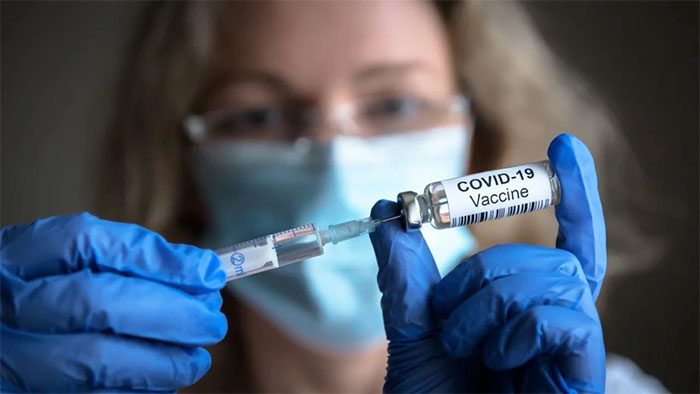Mouse experiments show that a new antibody can neutralize all variants of SARS-CoV-2. These findings may provide insights for a new vaccine against Covid-19.
Previous antibodies used to treat Covid-19 have lost their effectiveness as SARS-CoV-2 has mutated. Many new variants have emerged, particularly Omicron, which have evaded the antibodies generated by vaccination.
However, according to Scitechdaily, humans may be better protected against variants thanks to a new antibody developed at Boston Children’s Hospital. In tests, this antibody has neutralized all variants of SARS-CoV-2, including Omicron variants.

New findings may be crucial for the development of new vaccines. (Photo: Shutterstock).
Demonstrating Effectiveness in Mice
“This antibody has proven effective in clinical evaluations. We hope it will demonstrate equivalent effectiveness in neutralizing SARS-CoV-2 in patients,” said Dr. Frederick Alt from the Cell and Molecular Medicine Program at Boston Children’s Hospital, who co-led the research.
In a study published in Science Immunology, Dr. Alt and Dr. Sai Luo utilized a modified mouse model previously used to search for broadly neutralizing antibodies against HIV—a virus known for its frequent mutations. These mice have an immune system similar to that of humans, making the model closely resemble how our immune systems generate antibodies.
Initially, researchers introduced two human gene segments into the mice, prompting their B cells to produce large quantities of human-like antibodies in a short time. They then exposed the mice to the Wuhan-Hu-1 strain of the spike protein of SARS-CoV-2, which is the primary target of our antibodies and current vaccines. The mice developed nine families of antibodies similar to those in humans.
Along with a research team from Duke University led by Dr. Barton Haynes, Dr. Alt and Dr. Luo subsequently assessed the effectiveness of these antibodies. Antibodies from three of the nine families showed efficacy in neutralizing the Wuhan-Hu-1 virus. Notably, the SP1-77 antibody and its related antibodies demonstrated broad activity, neutralizing the Alpha, Beta, Gamma, Delta variants, and all previous and current Omicron variants.
A New Approach to Neutralizing the Virus
What makes the SP1-77 antibody capable of such broad neutralization? Structural studies led by a team including Dr. Bing Chen and Dr. Jun Zhang at Boston Children’s Hospital, along with the Haynes group at Duke University, indicate that SP1-77 operates differently from current antibodies.
Most current antibodies function by binding to the receptor-binding domain (RBD) of the spike protein at specific sites, preventing SARS-CoV-2 from attaching to the ACE2 receptors on cells—the first step in the infection process. The SP1-77 antibody binds to the RBD but in a completely different manner, not blocking the virus from binding to the ACE2 receptor.
Using live-cell imaging technology, Dr. Alex Kreutzberger and Tomas Kirchhausen (Boston Children’s Hospital, research collaborators) demonstrated that SP1-77 prevents the virus from fusing its outer membrane with that of the target cell. This hinders the final step required for the virus to infect the body.
This feature could provide valuable information for developing a new vaccine against SARS-CoV-2.
“SP1-77 binds to the spike protein at a site that has not mutated in any SARS-CoV-2 variant, broadly neutralizing current variants through a new mechanism,” Dr. Kirchhausen stated.

















































